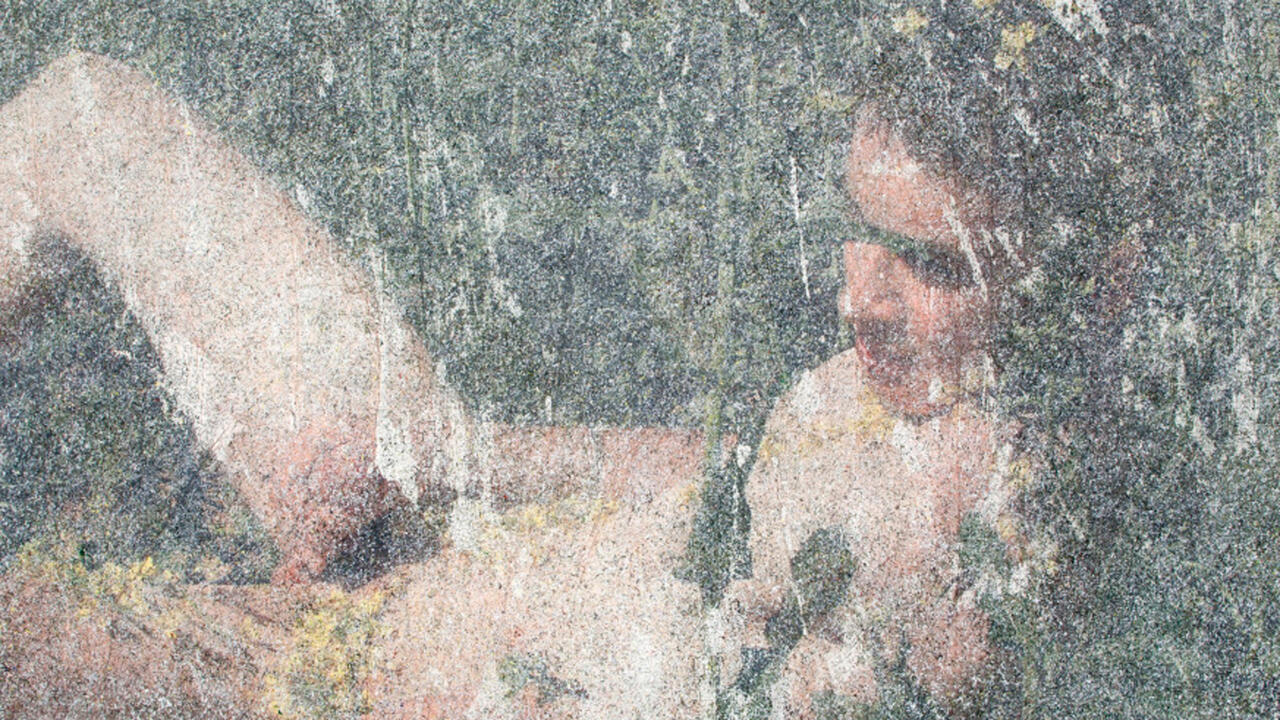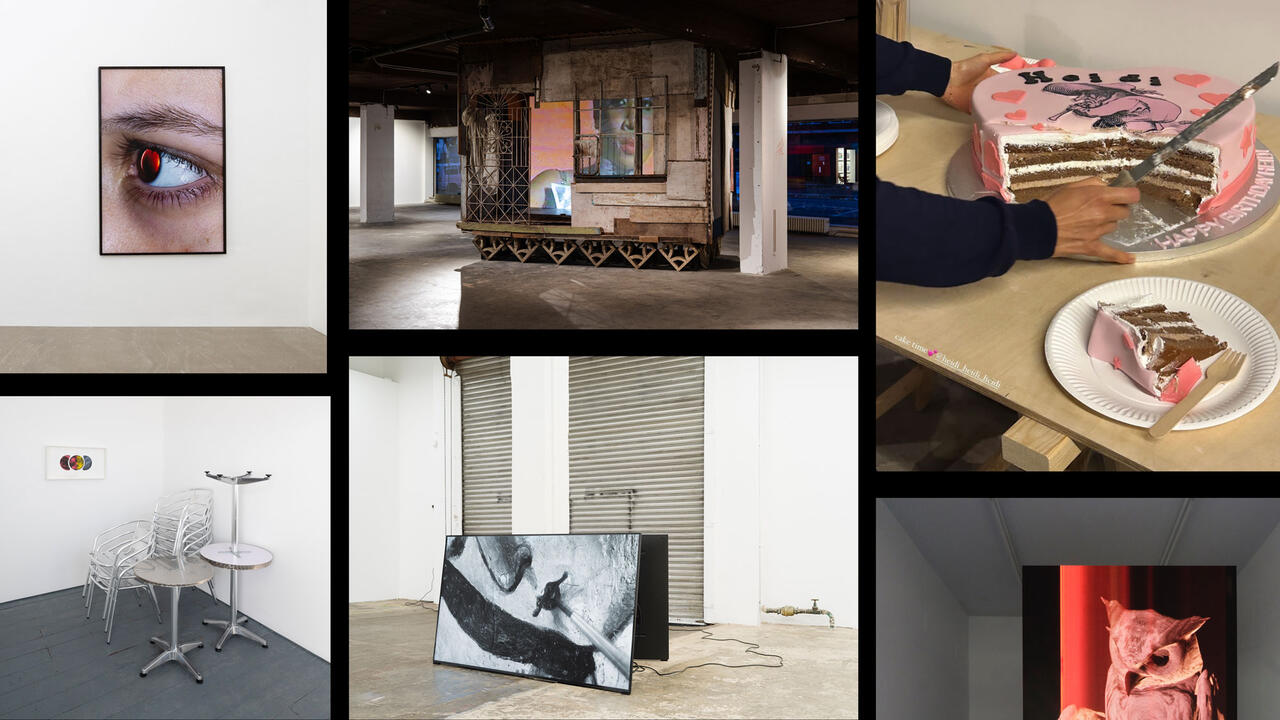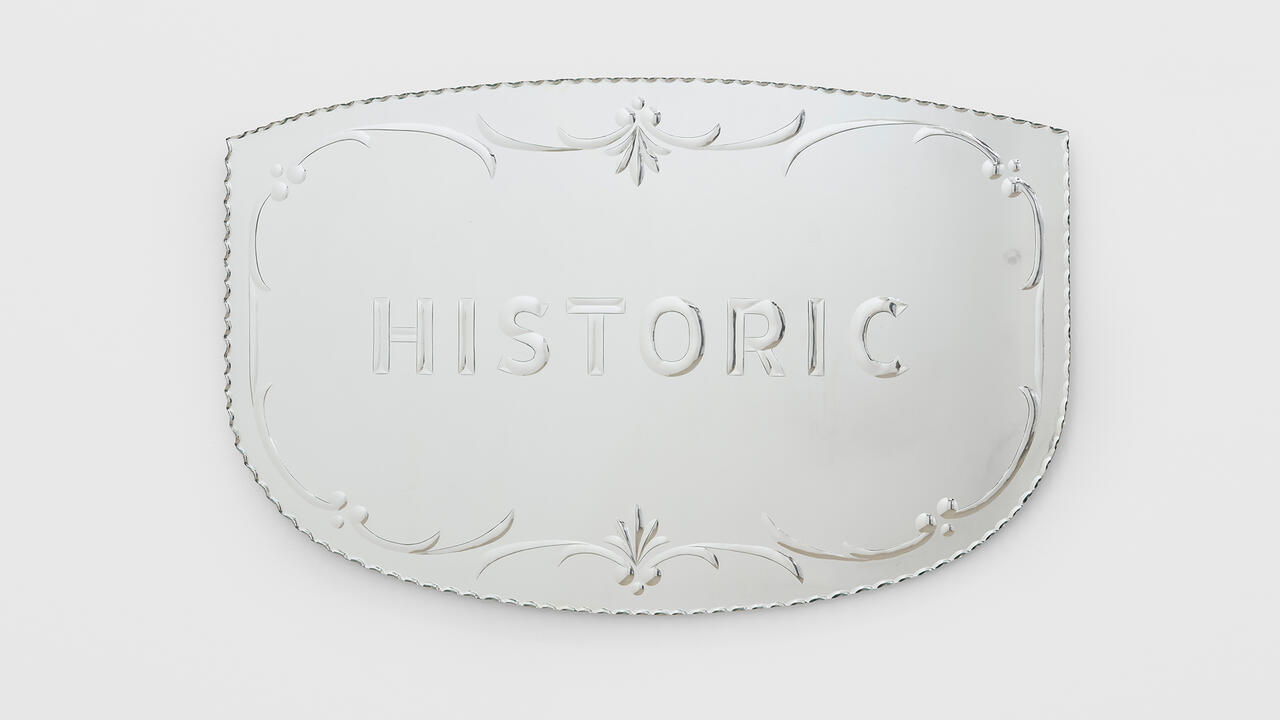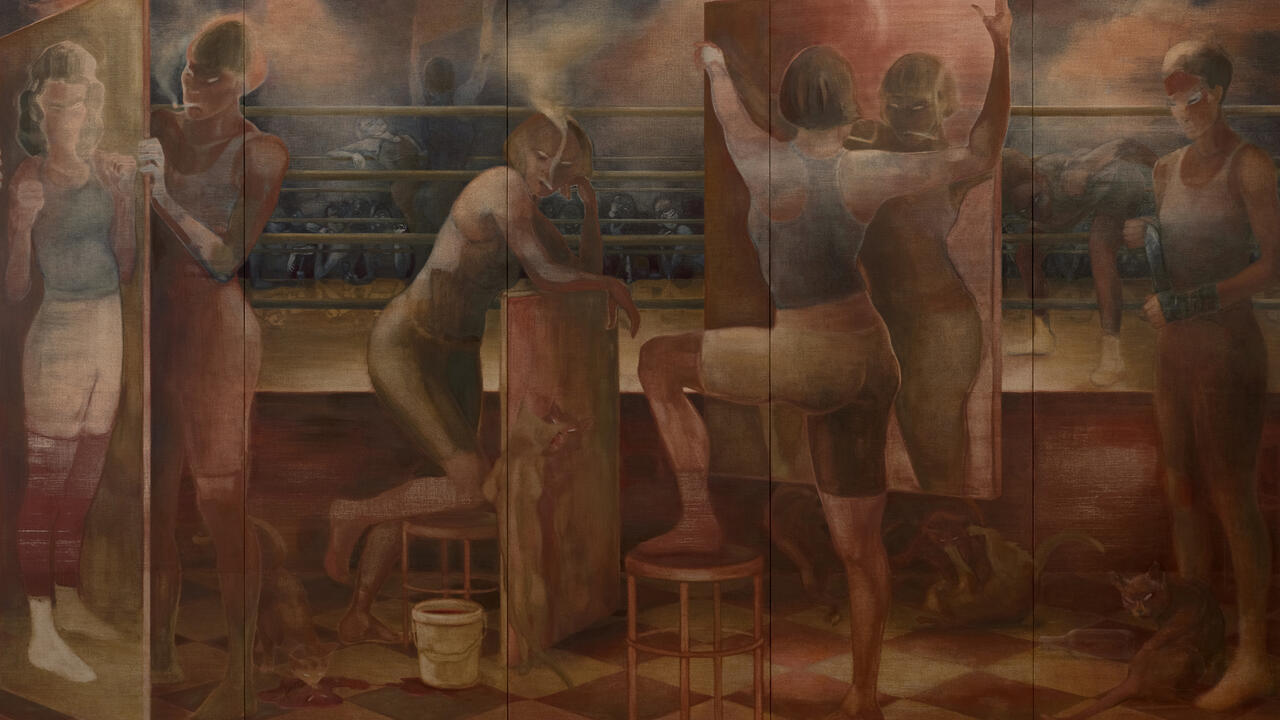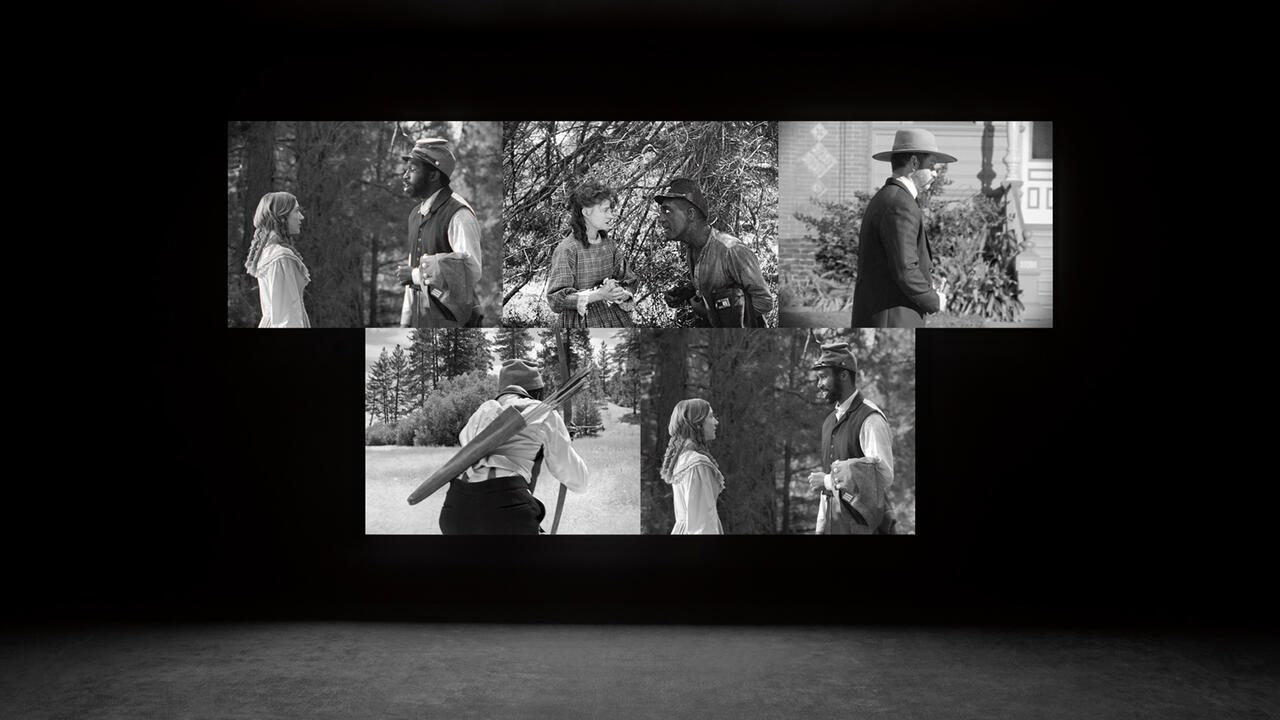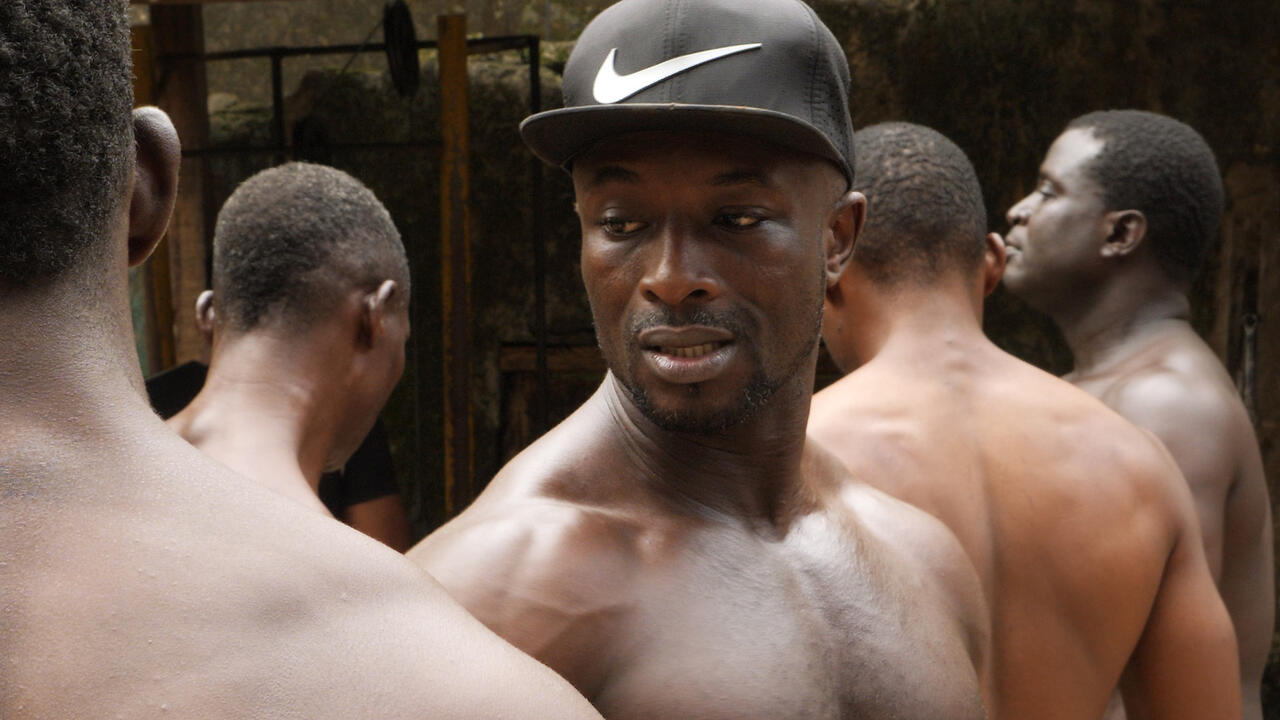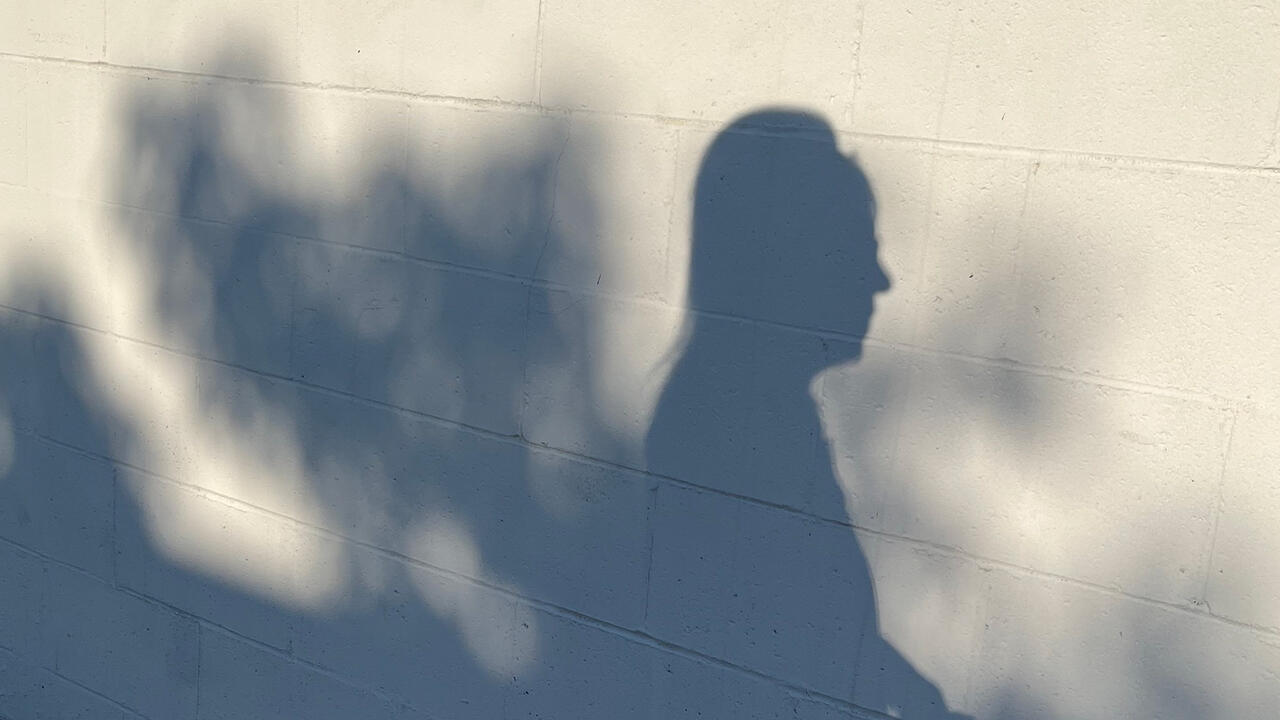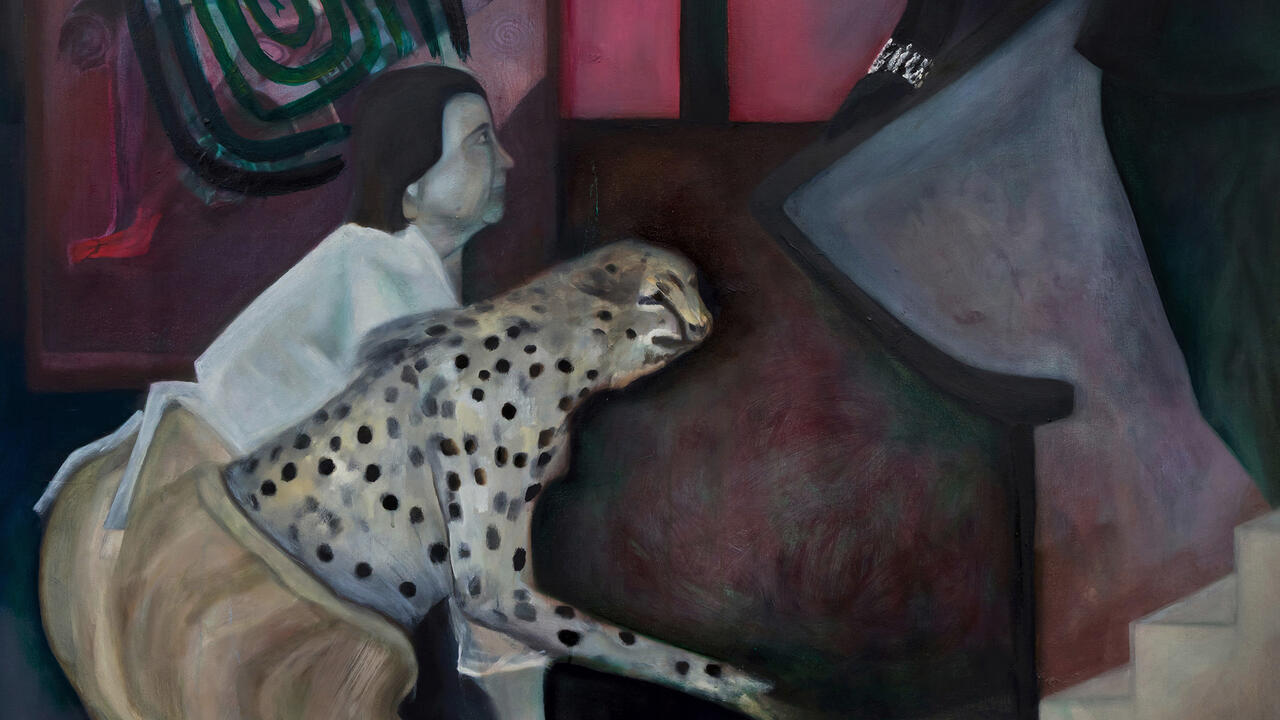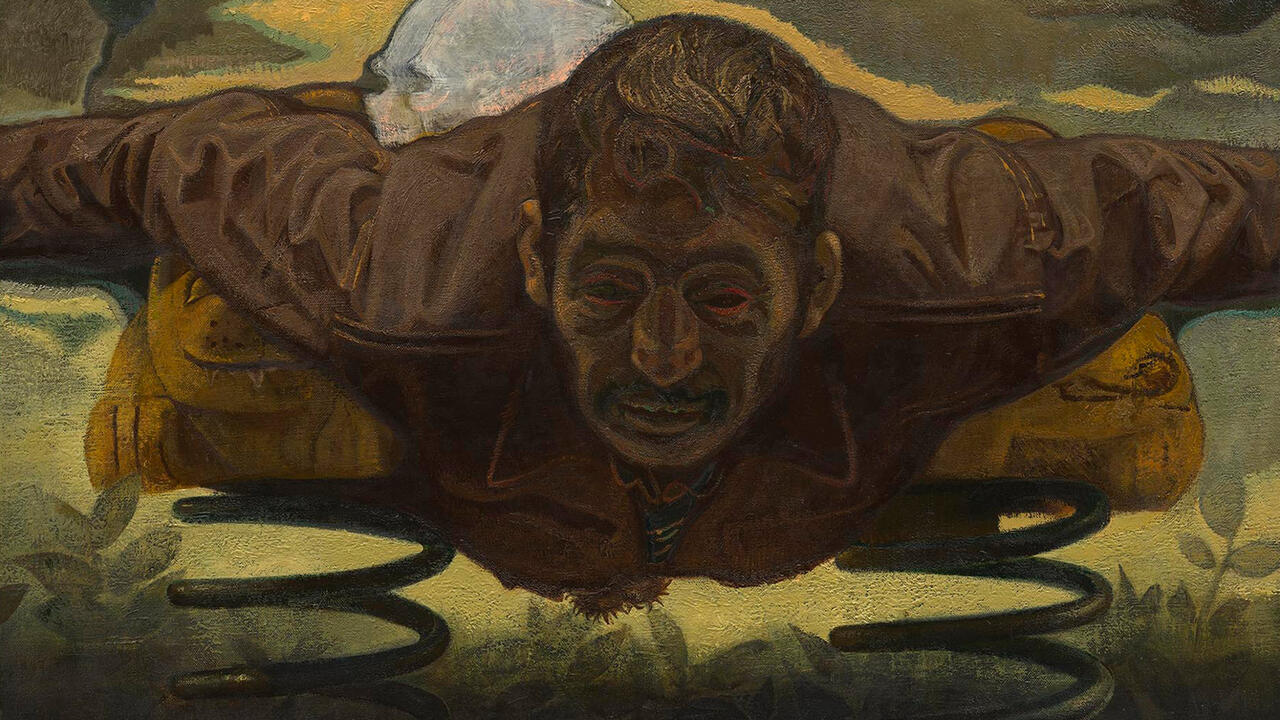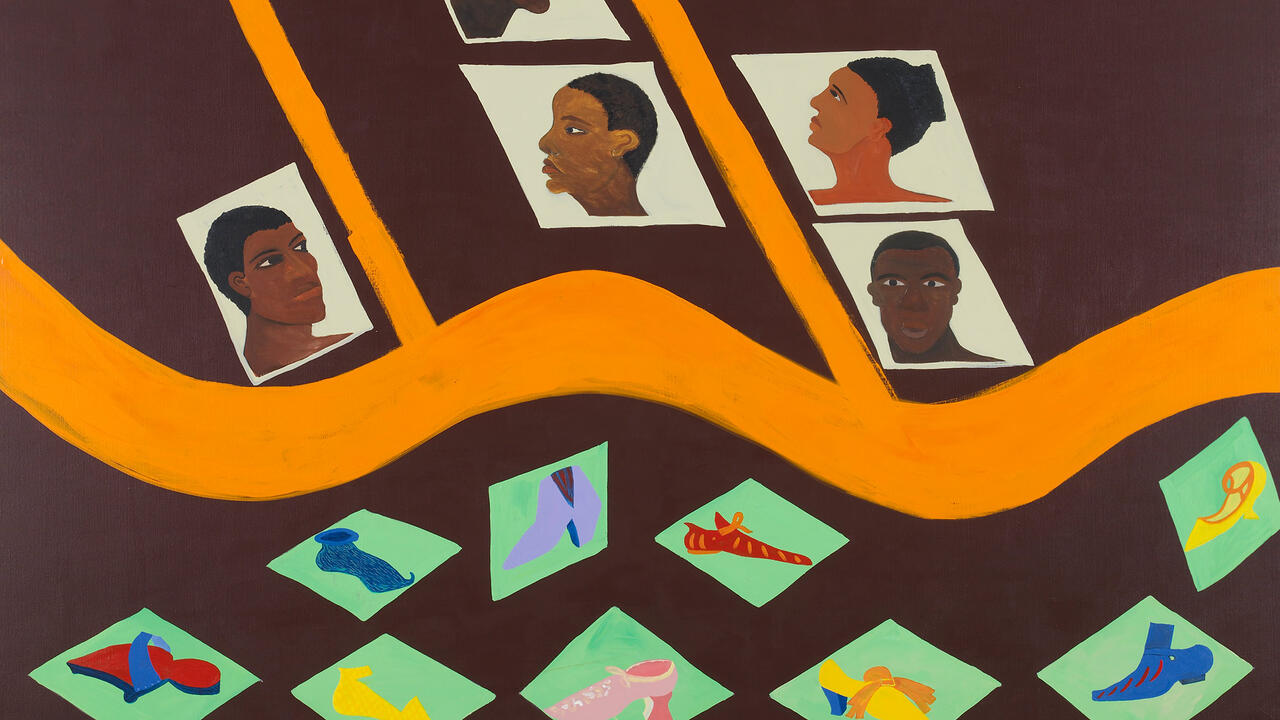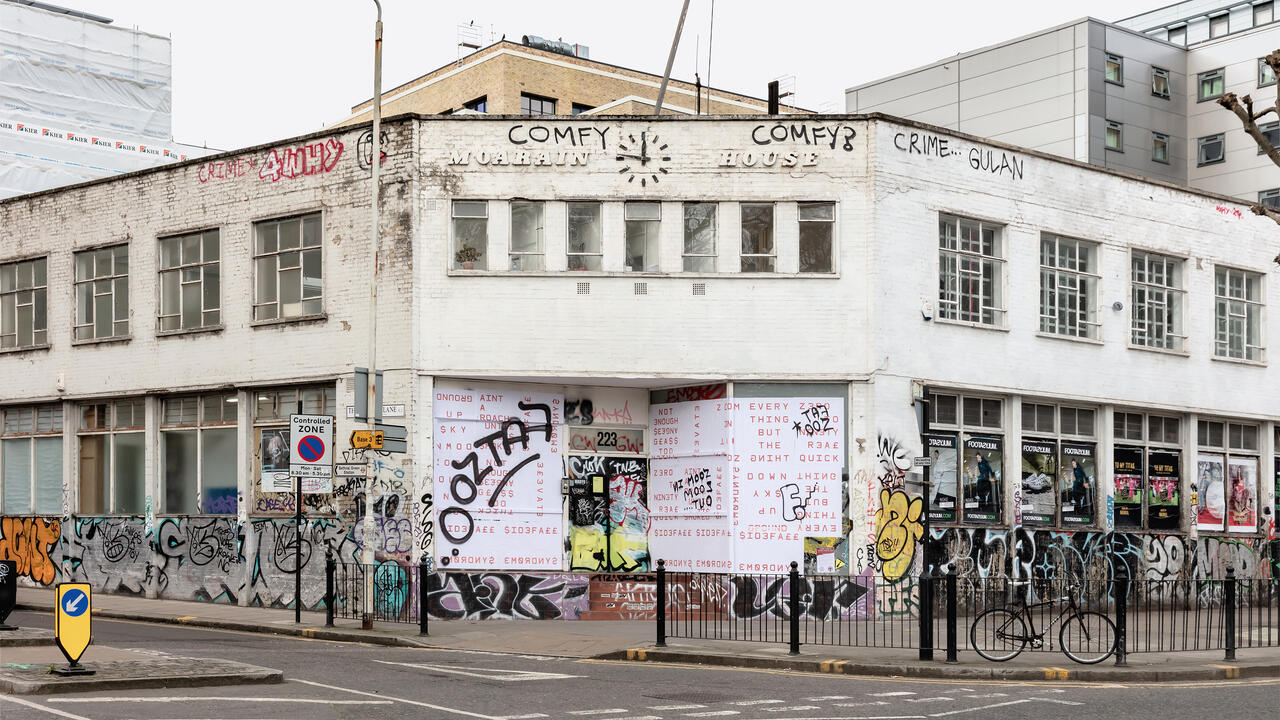Libita Clayton’s Exhibition Feels Its Way Through the Darkness of Colonial, Capitalist and Personal Histories
An immersive installation at Gasworks offers different modes of thinking about ‘the psychic inheritance of an experience for which one has no memory’
An immersive installation at Gasworks offers different modes of thinking about ‘the psychic inheritance of an experience for which one has no memory’

Even before you enter the gallery space, ‘Quantum Ghost’ fills the senses: the smell of the exhibition seeps under Gasworks’ double doors. Beyond them, six large backlit photograms appear to hover away from the walls, swirling with white shards. To the right is an arched entryway constructed of cob, a prehistoric building material of clay soil mixed with water and straw, its narrowness muffling the 21-minute, multi-channel sound work installed on the other side, so that the outer room only occasionally hums and throbs.
For her first UK solo exhibition, Bristol-based artist Libita Clayton traces her late father through personal documents, the National Archives of Namibia and the records of Camborne School of Mines in Cornwall. By collecting field recordings from these sites of colonial and capitalist extraction – also sites of her own heritage – Clayton invites us to hear these unevenly exploited landscapes (Cornish tin mines, the pink salt lakes and uranium mines near the town of Walvis Bay) and the ghosts that attend them.

In the photograms, handwritten scraps float alongside upside down, inverted photographs. From afar, these prints, produced by pressing mined minerals directly into treated paper, resemble galaxies. I am reminded of the hypothesis that the electromagnetic spectrum makes just five percent of the universe visible, the rest is dark matter and dark energy. ‘More is unknown than is known,’ writes NASA on its website. The glow behind Clayton’s photograms invites scrutiny, but looking closely only intensifies their disintegration. The work teases Western culture’s privileging of sight, its fetish for equating vision with knowledge, and then slaps it away. Dark matter does not submit.
In the tunnel made of cob, the ground transitions from swept gallery floor to chunky, crunching stone. Inside, the cavernous space is the kind of deep dark that holds the potential for germination. Three small ceiling lights, the colour of eyelids shuttered against bright light, enclose the three clustered speakers mounted on stakes. The rustle of turning pages bounces between speakers – first on my left and then right. I sink to a squat and close my eyes to feel for the other being-objects breathing in the room. The speakers say: ‘Bruises on the water ... bone … snaps ... a mouth’. Nothing coalesces into narrative. With eyes closed, I perceive two more speakers harmonizing. There are more here than I thought, speakers my body was already resonating to. Eventually, I register the subwoofer, squatting in the darkest recess. I touch the ground before it as though it is a drum and I am leaving the dance circle. Later, I tell myself that I was paying homage to the earth, but really I just felt a need to.

‘Quantum Ghost’ can be considered alongside interventions by cultural workers concerned with what Saidiya Hartman has called the ‘psychic inheritance of an experience for which one has no memory’, meaning no witness, and little archival memory. Clayton’s work registers how profoundly this temporal space is shaped by the violences of colonialism, extraction, chattel slavery, displacement – and invites us to be alert to it. That invitation comes by way of our bodies. ‘Quantum Ghost’ deprioritizes ways of knowing that privilege sight and the empirical: it feels important to remark that the gallery feels different. Pungency, sound, a tingling at the nape of my neck, the crunch of the shifting ground underfoot, changed daily by the passage of each person through the gallery, makes ‘Quantum Ghost’ not just haunting but alive, transformed and transforming. If you let it, it may unravel you a little.
Libitya Clayton, 'Quantum Ghost' runs at Gasworks, London, until 24 March.
Main image: Libita Clayton, Untitled (detail), 2018, photograph. Courtesy: the artist and Brain the Tool


